As Football Manager approaches its 20th anniversary, the abiding challenge remains the same: adapt or die
Interview | Sports Interactive turns 30 this year, FM turns 20, and the game plan for the digital dugout endures

Only a stone's throw from West Ham's London Stadium, in a trendy development of glass-fronted office buildings, sits Sports Interactive. Walk through the doors and you're in a dressing room where signed shirts from giants of football line the walls: Messi, Ronaldo, Beckham, Totti, Cannavaro. You walk into the studio space and discover that framed shirts line the walls of the entire space – there's Ruud Gullit's Netherlands shirt from Euro 1988, hanging just above the espresso machine. There are meeting rooms with names such as The Terrace, and on the back of every office chair there's a football shirt, from the staff member's favourite team, with their name printed on the back. There can be no confusion about the kind of game this studio makes. This studio makes football games.
Sports Interactive, founded by Paul and Oliver Collyer in 1994, has had a singularity of purpose from the very start. Except for brief dalliances with baseball and hockey management, football games are all SI has ever made. And it's arguably made them better than anyone else. Each Football Manager game is an impossibly detailed reproduction of the sport, covering everyone from the players in all its major leagues across the world to the backroom staff, scouting networks, agents and media who shovel the coal into the sport's engine room. The real footballing world used to laugh at Championship Manager, as SI's stock-in-trade was known before the studio parted ways with Eidos, leaving the name with its former publisher. In the two decades since that split, though, things have changed an awful lot.
"I can remember exactly where I was standing when I read it," studio director Miles Jacobson says. "I was in the old office on Upper Street, on the fifth floor. Someone handed me a copy of the Evening Standard and said, 'Have you seen this?' It was an interview with André Villas-Boas, who at the time was José Mourinho's chief scout. "And he was asked the question: 'Where have you found all these players that we haven't heard of before?' And he said, 'Championship Manager'. We were like, 'What the fuck?' We've been talking to clubs about this, and they've been laughing about the idea of using our database. And here's André Villas-Boas going, 'Those of us who've grown up playing the game use the game'."
Grassroots
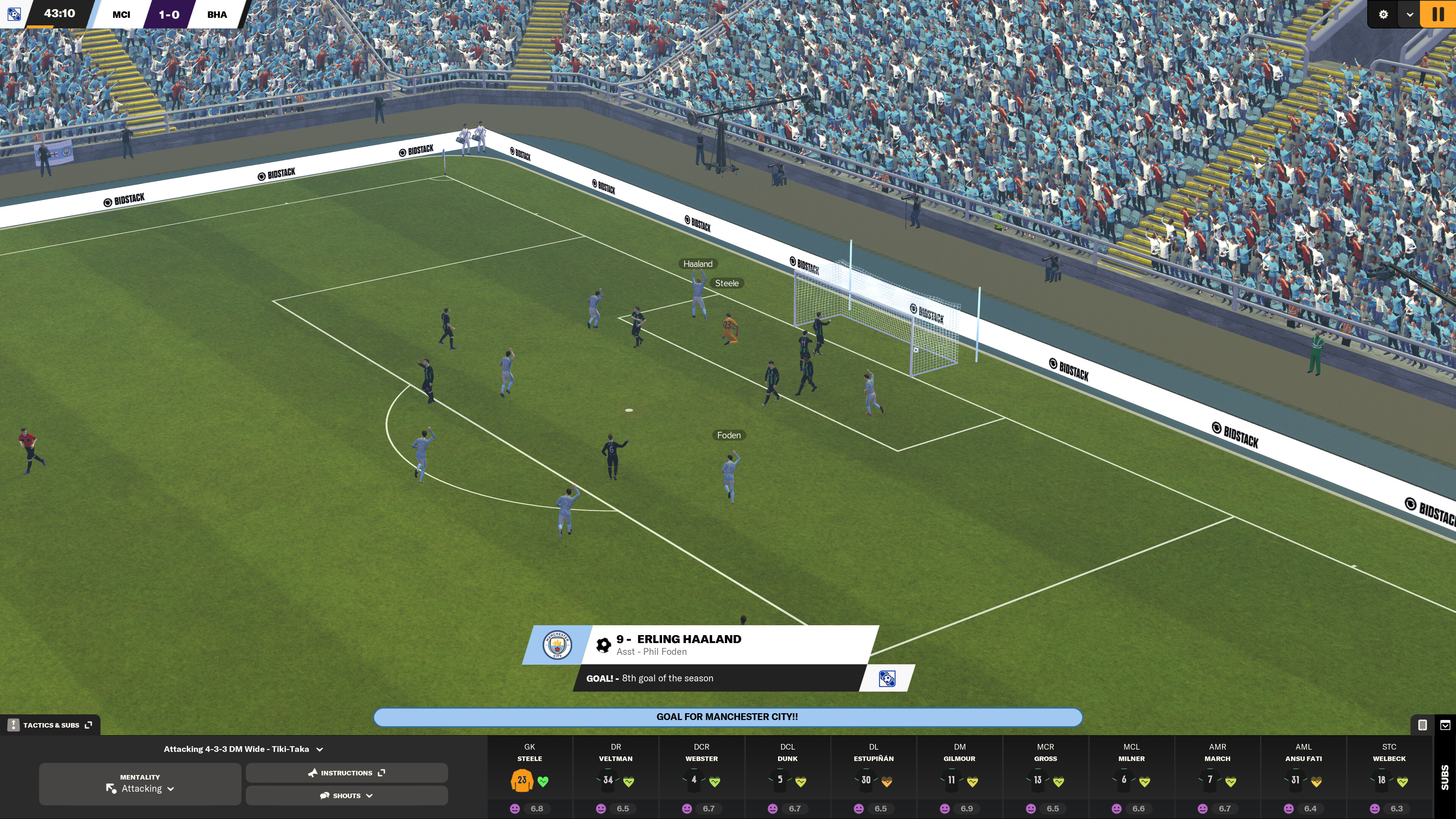
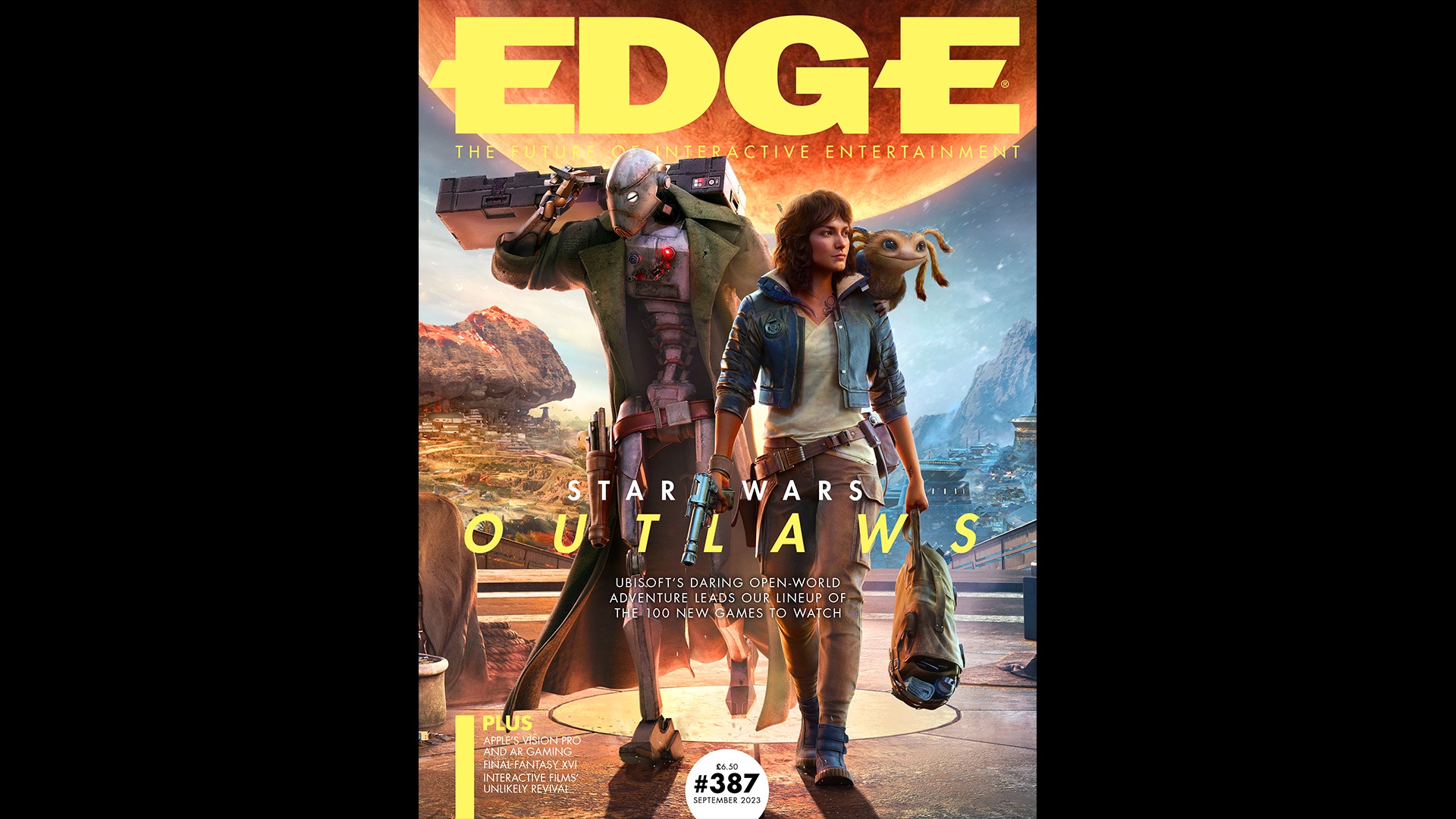
This feature originally appeared in Edge Magazine. For more fantastic in-depth interviews, features, reviews, and more delivered straight to your door or device, subscribe to Edge.
Now, using the game's database as an actual scouting tool is common practice in the footballing world. The studio's emphasis is still firmly on keeping its five-million-strong player-base happy, it insists – but in order to do so it's working ever closer with the organisations and individuals it meticulously recreates.
David Siddall is senior research director at the company. Once upon a time, the team relied on the opinions of remote scouts and "the eye test": what sort of promise does a young player show when you sit in the stands and watch him in a match? That's still in the mix, naturally, but Siddall explains how its data sources have grown over time: "We now compare that as a base and then we look to combine elements of real-world data in there. So we have partnerships with data providers and we have a data analyst within the research team, which is a fairly new addition." This extra layer means the research team can verify scouts' insights with hard facts. And, as SI has become a bigger part of football, the number and calibre of scouts contributing to that database has only increased. That, we discover, was always the plan.
"At a very early stage, we as a studio set about to be a football business," Jacobson says, "not just a games business." Back in the days before Villas-Boas was name-dropping Championship Manager in interviews, SI found it harder to be taken seriously by others within football. Now, though, SI has built up a huge network of contacts informing them how the sport actually operates, right down to the nuts-and-bolts level – the bits the pundits don't mention on Sky Sports News. Over time, the studio became sufficiently well-established in this world that Jacobson could contact clubs directly and ask to attend training sessions. "And then, when I was at training, I'd say to the manager, 'Are you having a team meeting? Can I sit in? Oh, hello, chief exec – can I sit down and just have a chat with you about something?'"
The problem was, all that knowledge lay only with the studio director. So instead SI began what it calls the 'foot talk'. "That's where I get to do your job," Jacobson says, grinning in our direction. And in his seat? Football insiders who've agreed to be grilled on all aspects of their job: managers, players, chief execs, analysts and scouts. "Anyone who works inside football, basically." This talk lasts – of course – 90 minutes. But it's a game, Jacobson explains, of three halves. "The first half-hour is me asking about their career. The second half-hour is me asking them questions about game features that we're working on for the future." For the final half-hour, it's opened up to the floor, so the team can discuss features that are being developed for the game. "Some of that is validating, and some of it is the team going, 'We've been told to do this and we think it's bollocks'."
Weekly digests, tales from the communities you love, and more
This change in process happened five years ago, and it's indicative of a wider philosophical shift. "We've had a big, concerted effort over the last six years since we grew up and brought in a COO," Jacobson explains. Before that, the studio structure was very flat, and that meant most staff reported to Jacobson directly. "Which was crazy," he says now. There have been evolutions to the way Sports Interactive makes games, too.
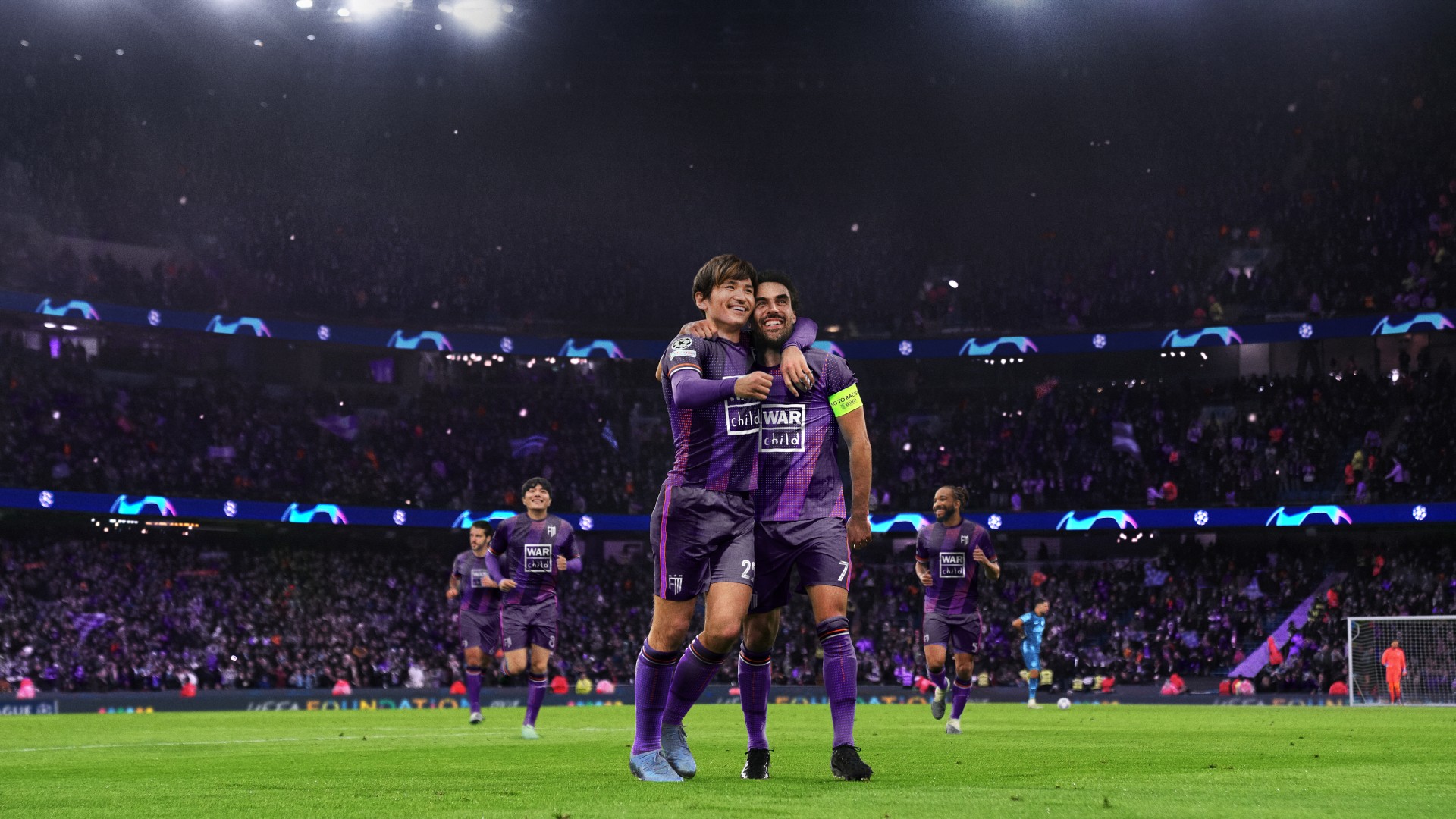
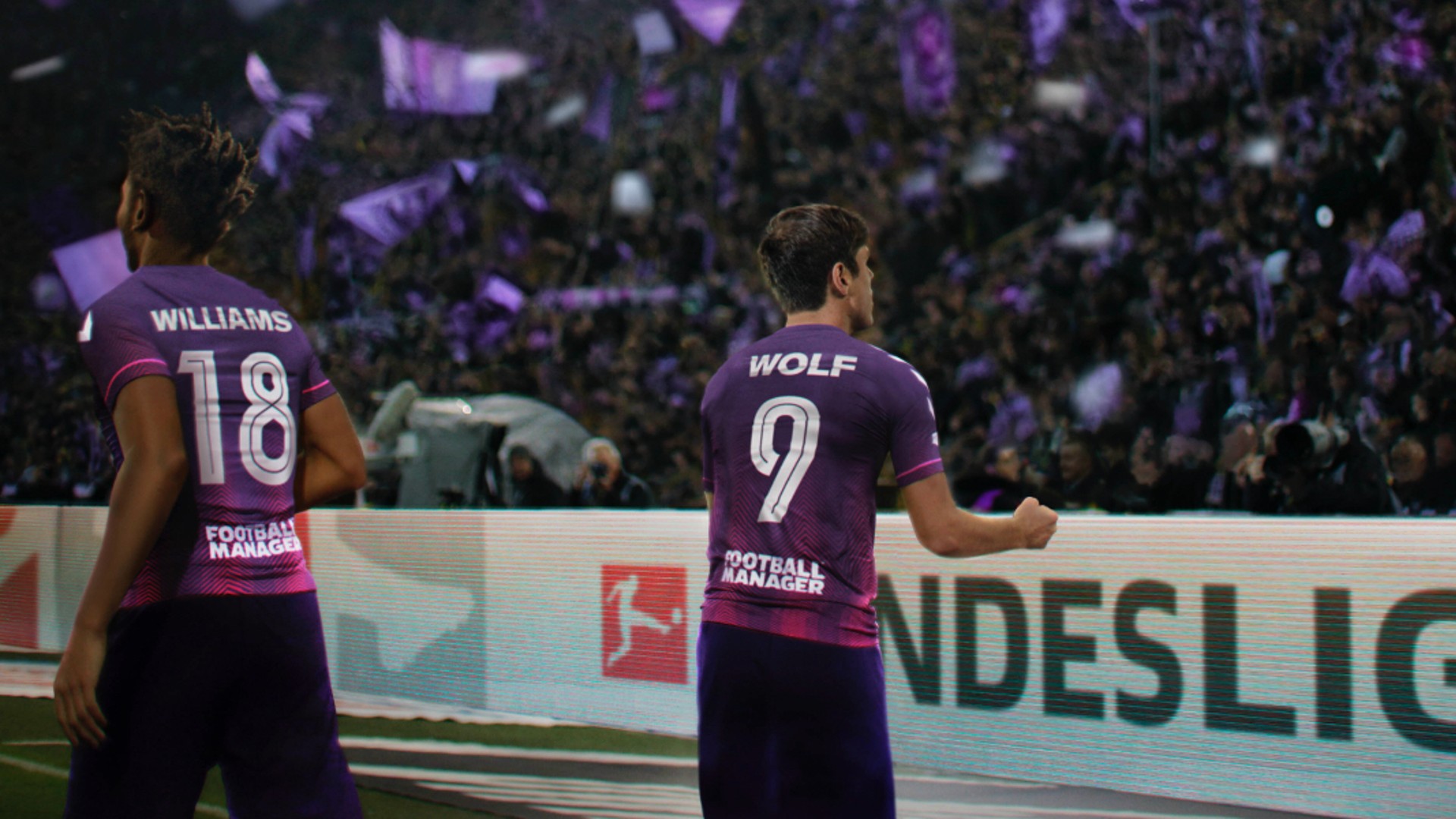
I worked at a pro football club – how closely does Football Manager reflect the real thing?
Marc Duffy is development director. Like Jacobson, he's a company veteran, having joined in 1999, back in the days of Eidos ownership. While many studios have made the transition from waterfall to agile development pipelines over the past decade, Duffy says, here it's something of a hybrid. "The studio has been set up since the beginning so that people work in teams: you've got your match team, your rule groups team, gameplay UI team. The change we've made in the last few years is trying to embrace agile as a philosophy, but we are taking a very loose version of it."
This structure is based around what SI calls "feature pods", as Duffy explains: "That is, cross-discipline [groups of people], so every time we spin up a feature, we get the right amount of people from across the studio, irrelevant of their discipline. And they're the people that take our design through from conception through to delivery." That means all the usual benefits of agile development are here: ownership and accountability from conception to delivery. It's particularly handy for a team creating an annualised series with a tight window for adding new features and ensuring that they add value to the experience. For Duffy and his colleagues, it's been "a game changer".
In the past, he says, "there was almost this element – even though no one was doing it on purpose – of throwing stuff over the fence. Whereas now, we get everyone together as one. It's a team. They meet every day, they have their standups, they have their sprint reviews, sprint planning, and actually they all own a feature."
Siddall has also felt the benefits of this 'feature pod' approach to working on the game. "Before, [development] wasn't really synced up. So you could add something, and it might not necessarily be activated in game for a few months, and therefore you'd have all this data that might be untested." When you're dealing with so many moving parts, that can become a huge problem, Siddall explains. Any feature that is added "has to have a guideline attached to it so that it's not misinterpreted, and the data we're getting is as accurate as we possibly can for what we need it for."
There's another good reason for this shift in process. As with almost every other aspect of the studio we discuss, previously the responsibility for all of it fell on Jacobson's shoulders. "We never had a design department in the studio until very recently," Duffy explains. "It's only in the last year, or two years, that our design team has really spun up. It's actually been making a big difference. Before, I think we relied a lot on Miles to do a lot of the design work himself. And for [a game] the size of ours, there's absolutely no way that one person can own it."
Sports Interactive (A)
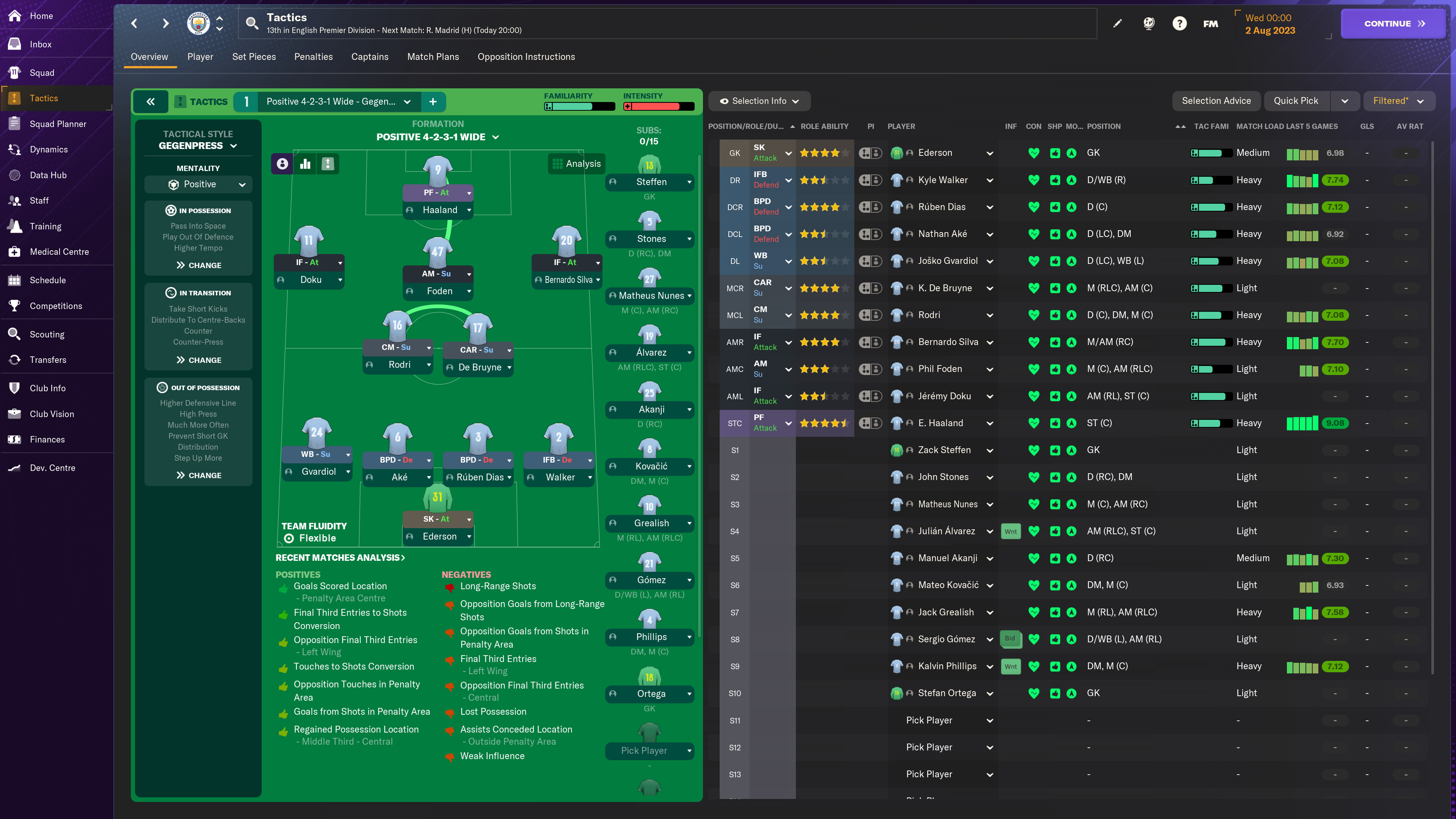
"We're just making sure that we're getting incredible people involved at every stage to help us make better games."
From the perspective of an outsider, visiting this studio with its football shirts and dressing room, there's the unmistakable sense of a business that has allowed itself the freedom to operate in a way fundamentally different from its industry contemporaries. Which is perhaps natural, given that the end product is itself unique: at its heart there's a huge database, with a series of menus guiding you between forays into a 3D match engine whose visuals owe more to Virtua Striker than EA Sports FC 24. In an era when triple-A studios face huge graphics challenges and are constantly struggling to hit higher visual fidelity levels, that's a desirable market position. And the Football Manager series has now enjoyed the best part of two decades without serious rivals. Internally, however, there's been an obvious imperative to keep adapting and evolving.
COVID played its part, as it did for all game studios. While some laid off staff or slowed development, for Sports Interactive it meant dramatically raising its headcount in order to work on a major visual overhaul (known internally as 'Project Dragonfly' and now planned for Football Manager 2025) while delivering Football Managers 2023 and 2024 on time. That bigger team needed a different way of working. Hence the COO, the feature pods, the hybrid-agile development. And it's been effective. "I think in the first year of the pandemic we were two weeks late, while everyone else was slipping by six months here, nine months there," Jacobson recalls. "And that was done via scope management. We had too many features we wanted to work on. I wanted to make sure that people were able to adapt to the new situation with as little stress as possible."
But the desire to keep revising and updating the processes that keep the company and its flagship title relevant go deeper than that. For Jacobson and his team, it really is a matter of adapt or die. "We've seen so many incredible studios that were [founded] at the same time that we were that either haven't adapted or they've adapted in the wrong way, and they've gone," Jacobson says. "And those of us who have adapted in the right way, we're still here, we're still kicking, we're still doing fresh, new stuff. Because we're just making sure that we're getting incredible people involved at every stage to help us make better games."
This feature originally appeared in Edge magazine. For more fantastic features, you can subscribe to Edge right here or pick up a single issue today.
Phil Iwaniuk is a multi-faceted journalist, video producer, presenter, and reviewer. Specialising in PC hardware and gaming, he's written for publications including PCGamesN, PC Gamer, GamesRadar, The Guardian, Tom's Hardware, TechRadar, Eurogamer, Trusted Reviews, VG247, Yallo, IGN, and Rolling Stone, among others.



